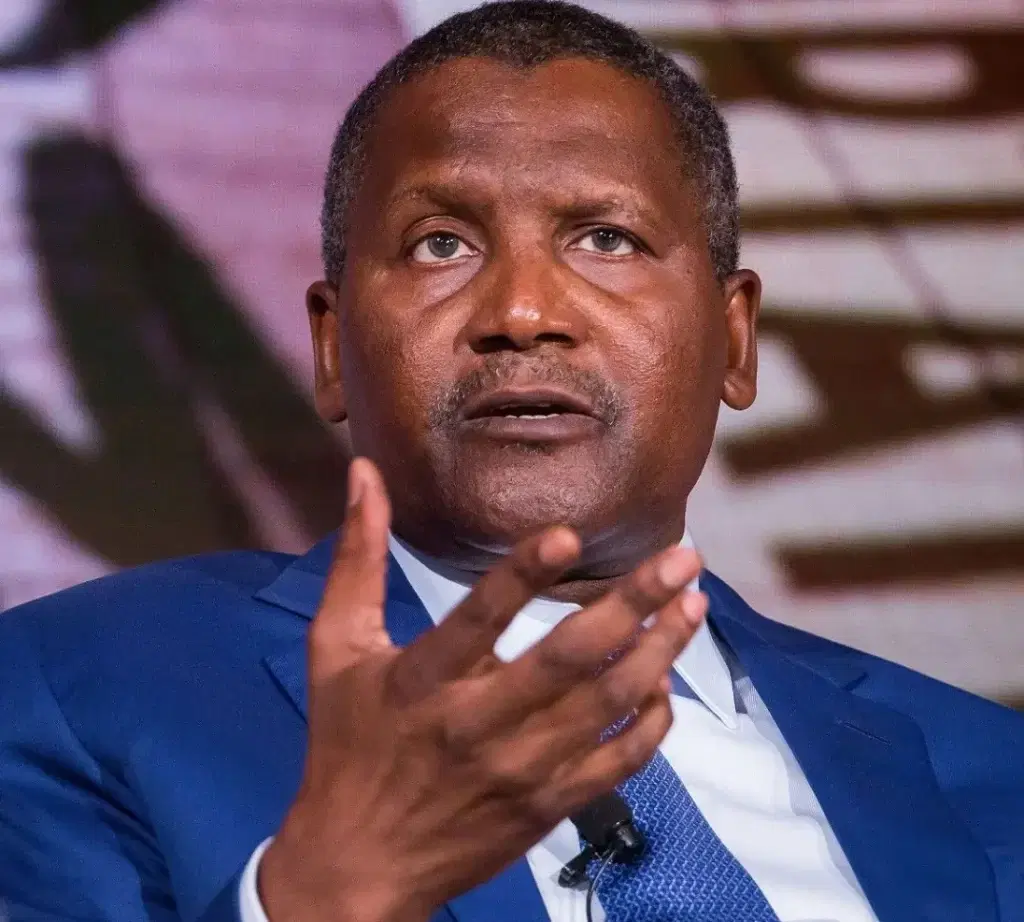Aliko Dangote, President, Dangote Group, says the international traders are frustrating the establishment of refineries and the efficient operation of existing ones in Africa due to dubious interests.
Dangote said the international traders maintained the offshore Lomé floating market, where more than two million tonnes of petroleum products were stored in vessels offshore and sold to African countries at inflated prices.
Dangote disclosed this on Tuesday in Abuja at the inaugural Global Community Insights Conference on West African Refined Fuel.
The conference was organised by the Nigerian Midstream and Downstream Petroleum Regulatory Authority (NMDPRA) and S&P Global Commodity Insights.
He spoke on “Building an African Refinery Hub: Prospects and Challenges”.
He stated that the offshore Lomé floating market existed solely to prevent any refinery from operating in sub-Saharan Africa.
“Another major barrier is the offshore Lome floating market, a uniquely African phenomenon. International traders maintain floating storage of about two million tonnes of petroleum products just offshore.
“These were being sold at inflated prices, given the lack of local refining capacity. Immediately, the Dangote Refinery became operational, they decided to crash the prices.
“But make no mistake, those who profit from this system will do everything they can to prevent other refineries from emerging.
“The whole essence of Lome is to ensure that no Refinery operates in Sub-Saharan Africa. In fact I don’t see any new major refining project succeeding with the offshore Lome market in existence.
“When you build a refinery and disrupt that system, you are not just innovating, you are threatening powerful interests that will seriously fight back,” he said.
He said that building a refinery threatened powerful vested interests entrenched within the petroleum value chain across many African nations.
He added that petroleum products were sold at inflated prices due to the lack of local refining capacity, but prices plummeted once the Dangote Refinery became operational.
He said another tactic used to undermine domestic refiners was the increasing dumping of cheap, often toxic petroleum products in Africa, some blended to substandard levels that would never be allowed in Europe or North America.
According to him, these low-quality fuels, blended with discounted Russian crude under price caps and dumped in African markets, severely undercut local production, which is based on full-market crude pricing.
Dangote, however, appealed that those obstacles and others should be dismantled through policy alignment, regional cooperation, and above all, strong political will.
Dangote, while emphasising the vast economic opportunity for Africa to replicate the success achieved in the cement sector, he disclosed that, from two million tonnes per annum, Nigeria now produced more than 50 million tonnes, becoming a net exporter.
“Today, thanks to our visionary investment, determined execution, and government support, we have 52 million tonnes of capacity across Africa and will be at 60 million tonnes capacity by mid next year.
“We are now a net exporter of cement in Nigeria and other countries, and are targeting export of 500 million dollars of cement and clinker by 2027,” he said.
He, however, pledged to replicate a similar feat in the energy sector.
“Today, Nigeria has become a net exporter of refined petroleum products, polypropylene, and urea, a historic turnaround.
“With our Liquefied Petroleum Gas (LPG) production of 2,500 tonnes per day, we are working to encourage more homes to increase LPG utilisation.
“And we are just getting started. Very soon, the refinery will be listed to give all Nigerians an opportunity to become shareholders,” he added.
He underscored the need for Africa to refine all the petroleum products it consumed right on the African soil.
The News Agency of Nigeria (NAN) reports that the conference is designed to provide a foundational platform for exploring the potential development of the West African reference market for refined fuels.
It is focused on regional standardisation, pricing mechanisms, data transparency, stakeholder collaboration, market fundamentals and participation, expansion of in-country refining capacity and infrastructure development. (NAN)
The post International traders frustrate refineries in Africa, says Dangote appeared first on Vanguard News.

